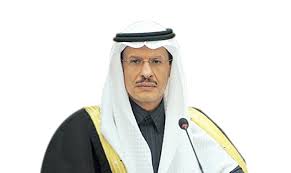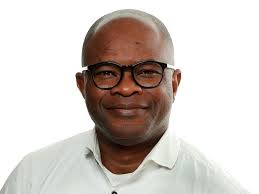The Organization of Petroleum Exporting Countries OPEC+ members agreed to maintain their current crude oil supply through the end of 2024, following a weekend of intense oil diplomacy in Vienna, Austria
Similarly, quotas for 2024 were lowered for production under-performers, including Nigeria, Angola, Azerbaijan, Malaysia, Congo and a few more countries.
Under the arrangement Nigeria’s quota was lowered to 1.38 million barrels a day in 2024.
The alliance’s total quota cuts were deepened to 4.7 million barrels a day b/d for July some 5 per cent of global capacity though in reality, many members have failed to hit their targets for years, making the actual physical reductions far less.
Also, under the agreement Saudi Arabia will slash its crude output by an extra 1 million b/d for at least July on top of its existing production cuts, energy minister Prince Abdulaziz bin Salman announced June 4 in a deal with OPEC+ counterparts, under the kingdom’s latest aggressive bid to reverse a tide of bearish trade sentiment and tighten the oil market.
The cuts come as many forecasts including OPEC’s own predict much higher global oil consumption in the months ahead, but Prince Abdulaziz described the decision as “precautionary.”
He told reporters: “We’re hedging. We’re using the fundamentals to hedge. We will continue to hedge as long as we don’t see clarity and stability in the market.”
Analysts at S&P Global Commodity Insights expect 2.3 million b/d of annual demand growth in 2023, much of it back-loaded to the second half of the year while the OPEC’s latest monthly oil market report projects 2.3 million b/d of increased demand in the year.
The agreement also involves a complicated rebalancing of the alliance’s 2024 production baselines from which quotas will be calculated, redistributing allocations in favor of the UAE, with its higher spare capacity.
Based on the deal, the UAE will now be permitted to pump 200,000 b/d more in 2024 than it is restricted to in 2023, satisfying its long-standing complaints about having to hold so much of its production capacity offline.
Independent upstream analysis from three organizations, including S&P Global, will be used to assess production capacities to set baselines going forward, the alliance said.
The next OPEC+ meeting is scheduled to hold on November 26 this year, though a nine-country monitoring committee co-chaired by Saudi Arabia and Russia will continue to gather every two months, with the authority to call for an emergency OPEC+ session if needed.
The OPEC Seminar a usually triennial industry conference that has been delayed for two years due to the pandemic — is also due to be held July 5-6, providing another potential opportunity for ministers to review the decision and readjust quotas.
The 23-country OPEC+ coalition is currently holding production quotas 2 million b/d below October levels. For instance, in April, nine members, including Saudi Arabia, Russia, Iraq, the UAE and Kuwait, also voluntarily pledged additional cuts totaling some 1.7 million b/d, which will now remain in place through the end of 2024.
Prince Abdulaziz said the new extra 1 million b/d Saudi cut deemed a “Saudi lollipop” as a sweetener to fellow producers could be extended beyond July, though he declined to say when that might be announced.
He said: “We’ll do whatever is necessary to bring stability to this market. We are there to do as things progress and more certainty comes out.”
The decision is the culmination of two days of furious negotiations in Vienna, in the group’s first in-person meeting since October.
Ministers had to weigh desires by some countries to fight for greater market share against the fiscal pressures many members face from slumping prices. OPEC+ officials have been frustrated by what they feel is negative sentiment in the market that does not reflect actual fundamentals.
Platts, part of S&P Global, assessed Dated Brent at $76.06/b on June 2, down from a four-month high of $88.21/b on April 12.
Prince Abdulaziz had signaled at an industry conference on May 23 that short-sellers in the market should be on guard, raising market speculation that a production cut could be in order.
But getting to a deal required delicate diplomacy. Bilateral and multilateral talks went overnight into the early hours of the morning to hash out the quota math and find political appeasement for all sides.
Timings for the June 4 OPEC+ meeting were repeatedly changed to accommodate a flurry of negotiations on the sidelines, starting some six hours after originally scheduled.
Industry commentators say that in particular, the UAE, has felt aggrieved at how much production capacity it had been forced to hold offline over the past few years of the OPEC+ agreement.
The UAE, which is capable of pumping more than 4 million b/d but held to a quota of just 3.02 million b/d, was rewarded with the 2024 quota boost to 3.22 million b/d after heavy lobbying.
Meanwhile, many African members, especially Nigeria and Angola, have been struggling to meet their production targets due to under-investment, oil theft or internal dysfunction which saw their baselines significantly chopped, did not easily concede to the latest production adjustments.
Emirati Energy Minister, Suhail al-Mazrouei, told journalists that “we have discussed this before, to adjust the production of the UAE. All accepted a level of production that is representative, and also they have been given … the chance by the end of November to demonstrate a [higher] level of production.”
In his remarks, Nigeria’s representative, Gabriel Tanimu Aduda, said Nigeria’s reduced baseline reflected a “very realistic assessment” of its current production capacity, which it hopes to improve with more investment.
Also, war-embroiled Russia, the key non-OPEC producer in the group, also came under pressure to improve its compliance with its pledged 500,000 b/d cut, with its recent crude exports hitting record highs to maximize its oil income in the face of western sanctions and a price cap.
Brokering it all was OPEC kingpin Saudi Arabia, the world’s largest crude exporter, and Prince Abdulaziz, who has been tasked with managing the kingdom’s enormous oil wealth to support major economic diversification efforts and investments championed by his half-brother, Crown Prince Mohammed bin Salman.



